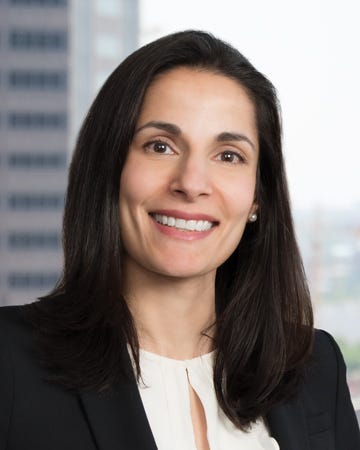Self-Regulation, in Life and Industry, Keeps Us on Track to Success
This year, self-regulation has found itself center stage in the dietary supplement industry.

I like to think of myself as a healthy individual.
I try to eat a balanced diet (filling in gaps with dietary supplements, of course) and do my best to maintain a consistent exercise regimen. Being a working professional and a mother of two, my best efforts are sometimes challenged, so I look for ways to keep myself disciplined and accountable for healthy practices. Like so many others, I started wearing a fitness tracker to help keep me aware of my daily activity (or lack thereof) and stay on-track to achieve and maintain my health and wellness goals.
In this sense, I self-regulate my personal health by way of a daily step goal and active minutes—and when you think about it, self-regulation exists all around us. We self-regulate physical and mental health, daily workloads and commutes, as well as finances and extracurricular activities.
This year, self-regulation has found itself center stage in the dietary supplement industry. With the launch of new programs and the continued success of those already in place, self-regulation is far more than a buzzword and industry trend. Self-regulation has continued to strengthen our industry and, like the fitness tracker I wear each day, keeps us motivated and aware of our actions.
This past April, industry’s latest collaborative self-regulatory initiative, the Supplement OWL™ (Online Wellness Library) dietary supplement product registry, launched. Since then, it’s gained momentum with industry stakeholders, receiving multiple letters of support, and is quickly en route to reaching its full potential of creating a more complete picture of the marketplace for regulators, retailers and industry stakeholders looking to identify products, their ingredients and the companies who market them.
The OWL has a lot of room to grow, and I encourage every responsible company with finished products on the market to enter their labels into the registry. Just as we need to be transparent with our personal health to reach our individual goals, industry also needs to be transparent. The Supplement OWL allows manufacturers to share basic information on their labels with regulators, retailers and anyone else who’s interested, demonstrating industry’s accountability to consumers and commitment to safe, quality products.
But the OWL is just the latest example of industry’s commitment to self-regulation.
In 2006, CRN partnered with the National Advertising Division (NAD) of the Council of Better Business Bureaus to provide a series of grants that enabled NAD to expand its monitoring program of dietary supplement advertisements, ensuring ads are truthful and not misleading. The CRN/NAD program complements the work of the FTC and encourages companies to “stand up for truth in advertising" by providing a forum and resolution process that gives advertisers the opportunity to comment on, withdraw and self-correct advertisements.
This program has been hailed by FTC as “an excellent example of self-regulation" and, to date, has published over 275 decisions. The process illustrates industry’s willingness to be self-critical and keep itself in check. It’s in our best interest to protect consumers, and the NAD program helps ensure consumers depending on our products receive accurate information. The detailed decisions issued by the expert attorneys at NAD also provide guidance to the industry on crafting truthful claims in compliance with federal law—potentially saving a company from FTC (or NAD) action down the road.
In addition to these two vital programs, industry has taken steps to improve specific aspects of its products by way of voluntary guidelines and best practices. CRN has developed guidelines for caffeine, iodine and protein, as well as several others in conjunction with industry colleagues. We commend groups such as the American Herbal Products Association (AHPA) for its guidelines on Good Agricultural and Collection Practices and Good Manufacturing Practices for Botanical Material, as well as NSF International and the Global Retailer and Manufacturer Alliance (GRMA) for developing consensus-based standards for dietary supplements and other FDA-regulated products.
Just as I work to hit 10,000 steps each day, despite my already established healthy habits, industry must work to improve itself, despite what’s already in place and working.
Looking for insights on state and federal regulators on the advertising and sale of natural products? Join us and Rend Al-Mondhiry for the Regulators & The Regulated workshop on Tuesday, Sept. 26, at SupplySide West 2017. The Workshop is underwritten by Venable, LLCP.
Rend Al-Mondhiry is associate general counsel at the Council for Responsible Nutrition (CRN), a trade association for the dietary supplement and functional food industry.
About the Author
You May Also Like

